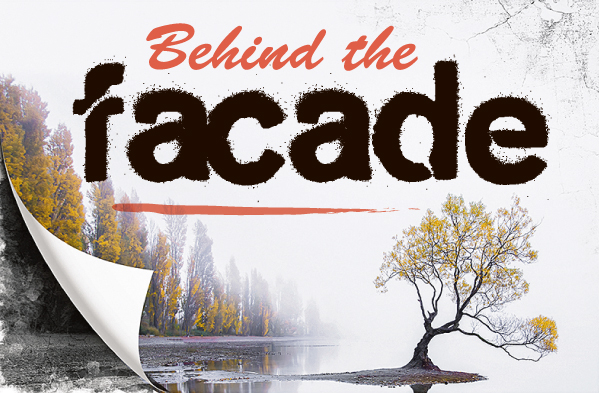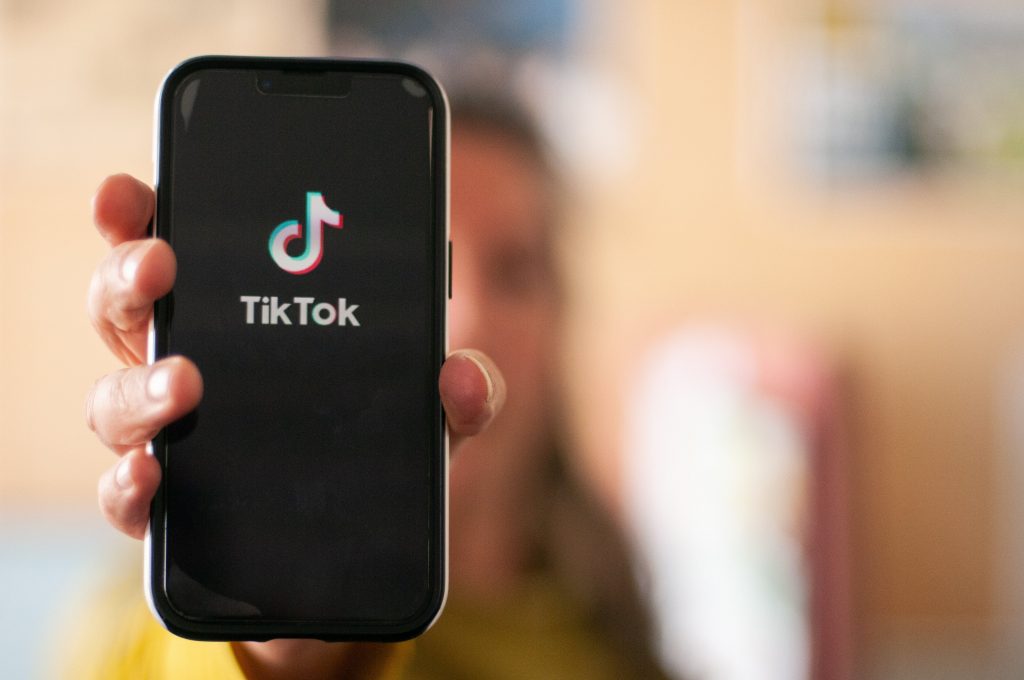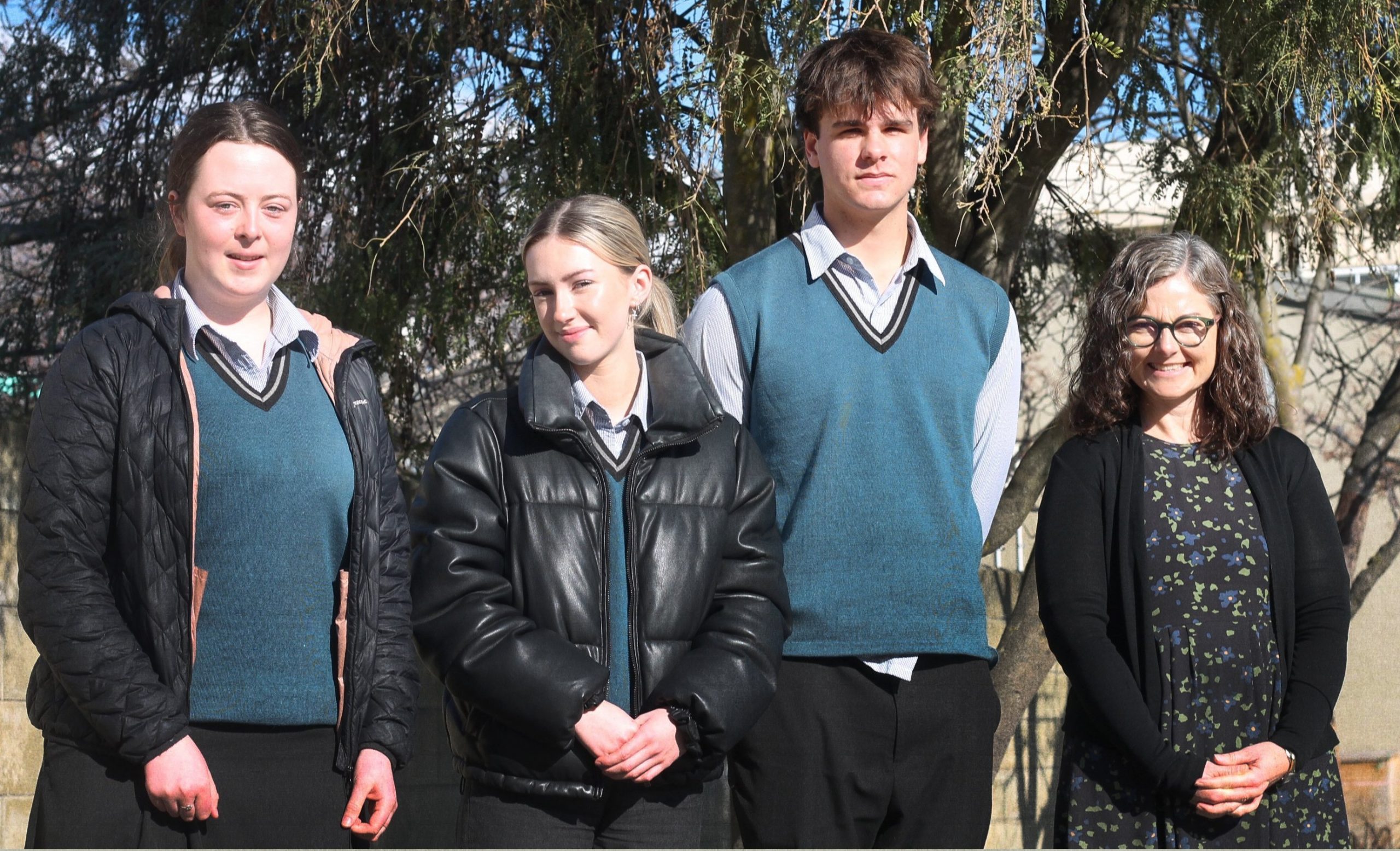
A Netsafe report showed one in four children (9-17 years old) said they had been bothered or upset in the last year by something that happened online. This week in Behind the Facade, Aspen Bruce spoke with members of Mount Aspiring College’s Wellbeing Committee — Harry Gilbertson, Sophia Perkins and Amelia Mitchell — about what they had noticed in the area and their perspective on the topic of social media and online bullying.
Q There are a lot of opinions and assumptions around what’s happening online in schools. What have you noticed?
Sophia: ‘‘I have heard a lot about group chats being made targeting certain people, and certain accounts where they group post about someone or group two people together and post about them. Most of that stuff is done anonymously and you won’t really know who’s posting it, and who’s behind the screen. I’ve never been involved in any of it myself, so I don’t really have a clear idea of it, but that’s what I’ve heard.’’
Harry:‘‘Yeah, I think there is a bit of that going on. There tends to be a bit in the younger years, the middle years 9›11, I think. You can find who does it.’’
What sort of platforms are being used?
Harry: ‘‘Bit of everything, but TikTok is probably the main one.’’
Sophia: ‘‘I feel like TikTok probably has the least restrictions and control over what you can post. I see a wide range of stuff on there, but also Instagram and Snapchat as well.’’
There have been concerns about Snap Chat’s Snap Maps [a location sharing feature]. Is that used quite often?
Harry: ‘‘It’s casually used.’’
Sophia: ‘‘I haven’t heard anything about it being negatively used, not here anyway.’’
Harry: ‘‘You’ve got control in that you can ghost mode.’’
Amelia: ‘‘You can choose who can see it.’’
Harry: ‘‘It’s not compulsory if you have Snapchat to have Snap Maps on.’’
How does something from social media transition over to real life, and potentially into social harm?
Harry: ‘‘I think sometimes if it gets intense, the online bullying can transition into in› person. If they’re saying mean things online then someone might come to school a bit heated and fight or verbally abuse [people].’’
Sophia: ‘‘I think the accessibility of everything to everyone. Things can be screen› shot and saved and then shared around, and it just amplifies the situation so much more. There’s not that much privacy between people’s chats and each other. It’s not really the app’s fault as such.’’

People often say teenagers aspire to be influencers. What are your thoughts around this and have you noticed it?
Harry: ‘‘From my experience, not really. I don’t know if it’s kind of the New Zealand culture, but that kind of thing is shunned. You’re coming out saying ‘Hello everyone, look at me, this is my vlog’, it’s like, come on mate, what are you doing. I think it’s obviously looking at the lifestyle they’re living — who wouldn’t want a big house, wake up just film your life and there’s your weekly pay. Whether it’s actually achievable is another question.’’
Amelia: ‘‘I couldn’t think of anything worse than showing my whole life to everyone, I feel like you’d have no privacy. I don’t understand why people like doing that personally. Like Harry said, a lot of New Zealanders aren’t really interested, it seems to be quite an American thing.’’
What I hear is if you build up an online following, you’re prone to potential bullying and if you don’t do it, you’re prone to bullying as well. Do you think that could be reflective of the tall poppy syndrome in NZ?
All: ‘‘Yeah definitely.’’
Sophia: ‘‘I think that’s definitely more relevant here in New Zealand, compared to other countries. They don’t get that same amount of hate online, and putting themselves out there [like in America], it’s more encouraged over there. I don’t know why that would be.’’
What do you wish parents knew about social media?
Sophia: ‘‘My parents, when I was younger, would stress because of everything they hear, it’s going to be bad. But I feel like I have a good amount of control [over] what I see and do on there. It’s more up to the user themselves and the education they have. I feel like a lot of parents just go nope, because they hear all this bad stuff about it and don’t want to expose their kids to it, which is fair enough. With the right education it can be a safe and good platform to have.’’
In terms of education, with social media being such a new technology, do you feel like your media literacy is adequate to navigate the decision and ownership over what is posted online?
Harry: ‘‘I think that has to do with maturity and what level people are at. You’ll get some kids who are 12, making these TikTok and Instagram accounts. Like any decision they make, they might regret it later on. Whether there’s something you can teach them about that, I don’t know, because it’s so new.’’
What benefits have you found with social media?
Harry — ‘‘The main one is communication is easy and accessible to anyone. Someone can be overseas, and you can them flick a text easily. For myself, I don’t really post much on social media, I use it to communicate.’’
Amelia: ‘‘Communication is the main thing.’’
Sophia: ‘‘Personally I enjoy the more creative side of it, seeing what other people post on their outlets. It inspires me.’’
What do you wish people knew about teenagers and social media?
Harry: ‘‘I think parents should know they don’t have as much control as they think they might have, because there’s so many ways to get around restrictions. We were talking about the school Wi-Fi, you . . . can have your IP address anywhere in the world and do whatever you want. There’s no way of avoiding that, because it’s such a big thing now that there’s going to be people creating software that allow you to create VPNs.’’
What age are children getting their first phone?
Sophia: ‘‘I feel like it gets younger and younger over the years.’’
Amelia: ‘‘When they start in year 7, [10-11] a lot are seen to be getting phones.’’
What age were you when you got your first phone?
Harry — ‘‘I think I was year 7, it was pretty basic. I pretty much played video games and called my parents in those days, because when I came to high school it was useful to communicate.’’
Sophia and Amelia: ‘‘Yeah, same time and situation.’’
Looking to the future, what role do you think youth have in taking responsibility for how they engage online?
Sophia: ‘‘I think [youth] have the most responsibility. There’s always a way around things. I guess parents can take your phone off you, but kids will usually find a way around stuff like that if they really want too. Everything they post, and everything they do is kind of up to them. So they have quite a bit of responsibility. Maybe a better education is needed about that, with the whole digital footprint and how everything you post stays out there and can harm you later down the track.’’
Harry: ‘‘It’s almost a bit like the wild west when they’re young. They go out there, post whatever and then figure out from there what they should and shouldn’t be doing. There is a need for the education for that. I think that’s something that probably could be useful for our generation.’’





